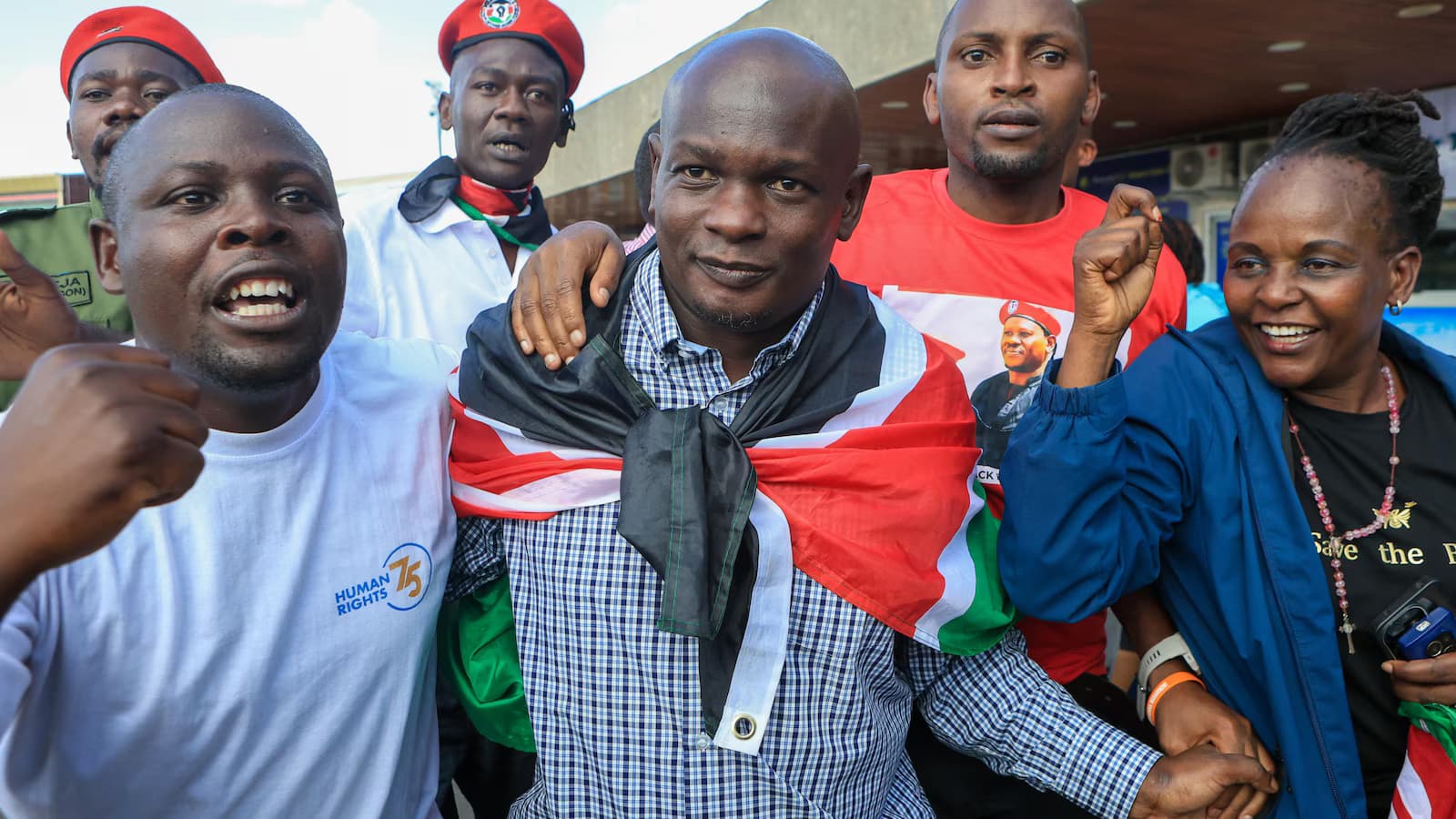We're loading the full news article for you. This includes the article content, images, author information, and related articles.
Kenyan activist Bob Njagi alleges a coordinated plot between Nairobi, Dar es Salaam, and Kampala to suppress regional dissent following his 38-day detention in a Ugandan military facility. The claims spotlight growing concerns over transnational repression in East Africa.

NAIROBI—Kenyan human rights activist Bob Njagi has made explosive allegations, claiming his recent abduction and 38-day detention in Uganda was a coordinated effort involving the governments of Kenya, Tanzania, and Uganda. Speaking to journalists on Wednesday, November 12, 2025, following his release, Njagi asserted that the three East African nations are collaborating to silence dissenting voices across the region.
“Our arrest was a coordinated arrest between the Kenyan government. They knew we were crossing over into Tanzania, they raised the alarm there, and those guys did the dirty job for them,” Njagi stated. He claimed this is part of a broader collaboration between the administrations of Kenyan President William Ruto, Ugandan President Yoweri Museveni, and Tanzanian President Samia Suluhu.
Njagi and his fellow activist, Nicholas Oyoo, were reported missing on Wednesday, October 1, 2025. They were abducted by armed men in plain clothes from a petrol station in the Kireka area of Kampala while in Uganda to support opposition leader Robert Kyagulanyi, popularly known as Bobi Wine. For weeks, Ugandan authorities denied any knowledge of their whereabouts, prompting outcry from human rights organizations.
The 38-day ordeal ended after Ugandan President Yoweri Museveni publicly confirmed the activists' detention on Saturday, November 9, 2025. In a press briefing, Museveni described the Kenyans as “experts in riots” and admitted they had been held by state security forces. “Here we have very good intelligence. We know them. They have been with us... They came and they were working with Kyagulanyi’s group,” Museveni said.
Upon their return to Kenya, a visibly frail Njagi recounted harrowing experiences of torture and starvation at what he identified as the Kasenyi Military Barracks in Entebbe, a facility he claims is operated by Uganda’s elite Special Forces Command (SFC). Njagi directly implicated President Museveni's son, General Muhoozi Kainerugaba, who heads the UPDF, in overseeing the alleged abuses. “It is the son Muhoozi who is undertaking these crimes against humanity,” Njagi alleged, adding that he witnessed over 150 other detainees being held without trial for political reasons.
In a separate and equally serious allegation made on television, Njagi claimed that some Ugandan soldiers he spoke to during his detention confessed to being deployed in Kenya, disguised in Kenyan police uniforms, to help suppress the Gen-Z-led anti-government protests in 2024. This claim could not be independently verified.
The Kenyan government has confirmed its role in securing the activists' release through diplomatic channels. Prime Cabinet Secretary and Cabinet Secretary for Foreign and Diaspora Affairs, Musalia Mudavadi, issued a statement on Saturday, November 8, 2025, welcoming their safe return. Mudavadi stated that their release followed “sustained diplomatic engagement between Kenya and Uganda,” and that both governments “maintained open and constructive communication.” Foreign Affairs Principal Secretary Korir Sing'Oei also confirmed the release, stating the activists were handed over to Kenya's High Commissioner in Kampala before being escorted to the Busia border.
However, the Kenyan government has remained silent on the specific allegation that it initiated the arrest. While not directly addressing Njagi's claim of complicity, PS Sing'Oei suggested the activists were interfering in Uganda's internal affairs, stating that rights enjoyed in Kenya may not be applicable elsewhere. The Tanzanian government has not issued any public statement in response to the allegations of its involvement.
The incident has drawn sharp condemnation from human rights groups, who point to a worrying trend of transnational repression in East Africa. A joint statement by Amnesty International Kenya, the Law Society of Kenya (LSK), and VOCAL Africa on October 6, 2025, described the abduction as a “blatant violation of Ugandan and international human rights law” and part of a “deepening crackdown on dissent in the region.” Human Rights Watch has also documented a pattern of governments in the region harassing activists and suppressing dissent, particularly around election periods.
This is not the first time Njagi, a land rights defender and chair of the FreeKenya Referendum Initiative, has been targeted. In August 2024, he was forcibly disappeared in Kenya for over a month after participating in anti-government demonstrations. The cross-border nature of his latest detention raises critical questions for Kenya and the East African Community (EAC) regarding the protection of citizens and the upholding of democratic principles. While the EAC has a Peace and Security Protocol aimed at combating cross-border crime, activists fear such agreements are being used to target political opponents. The lack of a definitive response from Nairobi and Dar es Salaam leaves Njagi's serious allegations hanging over the state of regional cooperation and human rights.
Keep the conversation in one place—threads here stay linked to the story and in the forums.
Sign in to start a discussion
Start a conversation about this story and keep it linked here.
Other hot threads
E-sports and Gaming Community in Kenya
Active 9 months ago
The Role of Technology in Modern Agriculture (AgriTech)
Active 9 months ago
Popular Recreational Activities Across Counties
Active 9 months ago
Investing in Youth Sports Development Programs
Active 9 months ago
Key figures and persons of interest featured in this article